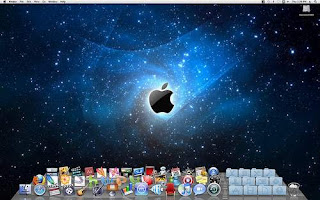All kind of hardware and software Troubleshooting..we provide network solutions..Registered software are available here
Tuesday, June 28, 2011
WWDC 2011: OS X 10.7 Lion
Apple kicked of its Worldwide Developers conference this year with a keynote meant to showcase three of its biggest software undertakings at the moment: Mac OS X, iOS, and iCloud, the latter of which being its new cloud computing service.
Apple covered their new products from oldest to newest, which means that Mac OS X 10.7 was first on the chopping block. Apple's Phil Schiller and Craig Federighi took the stage to demonstrate ten of Lion's purported 250 new features (don't get too excited - things like desktop wallpapers have been counted as new features in the past, so Apple is likely being very generous with its counting here).
I'm going to take you down that list, but because most of it is stuff we've seen before in one form or another in other Apple demos of Lion, I want to front-load the piece with pricing and release information for Lion, since those are the most interesting new facts we got out of Apple today.
Price and Release Date
First: Lion will go for $29, the same price as the current Snow Leopard upgrade, and it will release at some point in July. Pre-Snow Leopard upgrades of the OS were typically priced at $129, with a 5-license Family Pack being available for $199. Next, Lion will be made available only on the Mac App Store as a ~4GB download - there is, as of this writing, no plan on Apple's part to release Lion on a physical disc that you can buy. That $29 App Store purchase is good for all Macs you have registered to your App Store account.
There are, of course, positive aspects and negative aspects to this approach, and there's other stuff that we just don't know: how will this impact businesses and schools who would like to volume-license the OS? How will clean installs be handled, in the case of a crashed hard drive or otherwise trashed OS? What about people with slow or unreliable Internet connections? We'll just have to wait and see.
System Requirements and OS X Server
The first one: System Requirements. This is one of the many areas in which Microsoft and Apple differ in their OS strategy - while Microsoft makes certain recommendations about the type of PC that will give you a good Windows experience, there are very few configurations that will actually prevent the operating system from installing. Apple, on the other hand, prefers to drop support entirely for Macs that it feels are insufficient to run OS X. This goes all the way back to the 10.4 days, when Macs without FireWire were no longer eligible for OS X upgrades.
This time around, the OS will drop support for the 32-bit Core Solo and Core Duo chips shipped with the first Intel Macs in 2006. This is Apple's latest baby step toward a world where Macs use a 64-bit OS, 64-bit programs, and 64-bit drivers by default. They've been pushing this issue slowly but surely for most of OS X's development - indeed, recent Mac Pros and MacBook Pros are already set to use Snow Leopard's 64-bit kernel right out of the box, though most models still default to the 32-bit kernel.
Some have had success hacking the developer releases to run on these processors, but since these computers can only support up to 2GB of RAM, since they were only sold for a few months before being superceded by Core 2 Duo Macs, and since there are already 64-bit only apps in the App Store that won’t install on these older Macs under Snow Leopard, the decision to drop official support for these models is probably a prudent one that shouldn’t impact a huge portion of the OS X userbase (though expect those who it does impact to be very vocal about it).
Lastly, a brief word about Mac OS X Server: Back in the day, Apple's server OS either came preinstalled on the (now discontinued) XServe, or as a separate $999 unlimited-client package installable on any desktop Mac. Then came the $999 Mac Mini Server, which axed the Mini's optical drive in favor of a second internal hard drive - this drove the unlimited-client server software's price down to its current level of $499. In Lion, OS X Server is now an App Store download instead of a separate OS, and it costs $49.99. This is a substantial discount on what was already a substantial discount, and it should help to drive adoption of OS X server by small businesses and schools with a lot of Macs.
Subscribe to:
Post Comments (Atom)

No comments:
Post a Comment
If you have any Doubt..kindly let me know